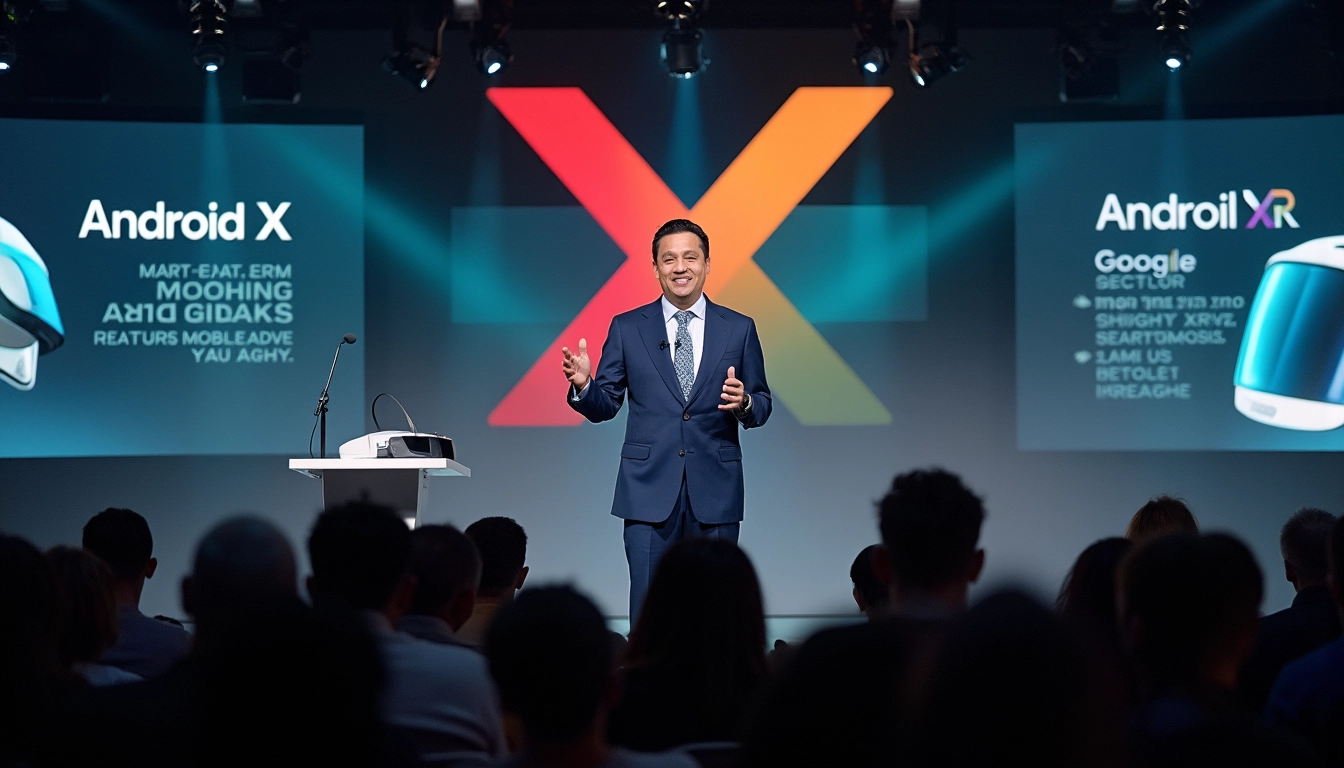
Android XR: Google Unveils AI-Powered Extended Reality Platform for 2025
Google’s announcement of Android XR marks a significant leap in extended reality technology, combining artificial intelligence with immersive experiences. The platform, set to debut in 2025, integrates Google’s powerful Gemini AI capabilities with advanced XR features, promising to transform how users interact with digital content through Samsung’s Moohan headset and Google DeepMind’s Project Astra smartglasses.
Table of Contents
Key Takeaways:
- Android XR will launch in 2025, featuring seamless integration with Google’s ecosystem and Gemini AI
- The platform supports both virtual and augmented reality experiences with optimized performance
- Advanced features include eye tracking and gesture controls for natural interactions
- Partnership with Samsung and Qualcomm ensures robust hardware support
- Comprehensive developer tools and SDK support OpenXR standards
Revolutionary Features and AI Integration
Android XR represents a significant advancement in extended reality technology. The platform merges smoothly with the existing Android ecosystem, providing access to familiar apps while introducing new AI-powered capabilities. By leveraging AI-powered features in mobile technology, Android XR delivers an intuitive and responsive user experience.
Hardware Optimization and Performance
The platform’s architecture is specifically designed for XR hardware, focusing on high-performance computing and minimal latency. Through optimization for Qualcomm XR chipsets, Android XR ensures smooth graphics and responsive interactions. The platform supports:
- Advanced head and hand tracking systems
- High-refresh-rate display compatibility
- Adaptive display rendering
- Multi-device connectivity options

Immersive Applications and User Experience
Android XR brings a comprehensive suite of immersive applications to life. Similar to modern smart glasses technology, it offers seamless integration of digital content with the physical world. Users can experience virtual reality environments while maintaining access to essential Google services.
Developer Support and Tools
Google provides extensive development resources through the Android XR SDK. Built on familiar Android foundations, it includes Unity integration and supports OpenXR 1.1 standards. I recommend checking out automation tools to streamline your development workflow.
Future Impact and Market Potential
Android XR is positioned to reshape the extended reality landscape. With Google’s extensive ecosystem backing it, the platform offers unprecedented opportunities for developers and users alike. The collaboration between Google, Samsung, and Qualcomm suggests a strong foundation for future XR innovations.



3 thoughts on “Android XR: Google Unveils AI-Powered Extended Reality Platform for 2025”